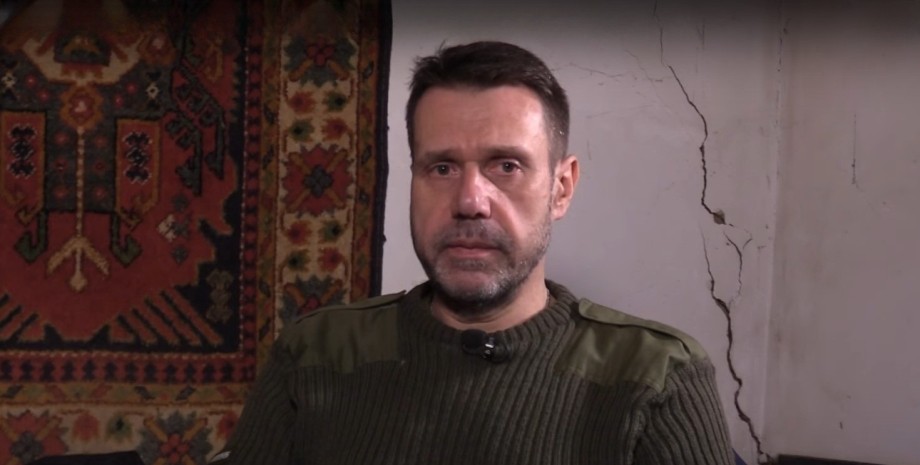
 By Victor Duda
By Victor Duda
In this case, they understand what they are fighting for and therefore will be more effective at the front than 25 years. On the other hand, men in 50 do not have health to reach positions and then safe from there. Myroslav Borysenko told his vision of the mobilization process and the problems of the Ukrainian command of the commander of the mortar battalion of the Armed Forces of Ukraine in an interview with TSN.
Borisenko depicted the journalist the image of an ideal military who will be an effective fighter in the Russian-Ukrainian war. In his opinion, it should be a man aged 30 to 35 (40), family, with two children and work, with life experience and life achievements. Only in this case will the person be aware of what they fight on the front, the combat noted. At the same time, the fighter completely allows the decrease in the age of mobilization - this, according to him, is quite justified.
On the other hand, there is a problem with older men, more than 50 years old - they are no longer the state of health to actively participate in hostilities, the commander said. "Undoubtedly, as a decrease in conscript age. I consider it historically justified, because in all wars, in all conflicts, the average age of the serviceman was 25-26 years. It's just funny when we are now fighting 50-year-old uncles. It is not funny.
This is very tragic, because they often cannot even reach the lead, to the positions of firing positions. The combat also touched on the issue of women's mobilization. He explained that it supports this idea because in some cases women show even more efficiency than men. They are also no less motivated. However, according to Borisenko, it is so historically that women take on part of responsibility when their partners go to fight - they provide the rear.
Therefore, he is not sure that the mobilization of women will solve the problem of victory in the war. "Women in the army do the same work and they do no less than men. They are motivated, know how to win and want to win as well as men. The man goes to fight a woman, takes responsibility for the rear - they share these among themselves Functions.
Is it necessary to mobilize women? Borisenko explained that he joined the Armed Forces in 2014, first immersed himself in military life and still feels "Miklukho Maclay". The time spent in the army gave him the opportunity to draw conclusions about problems that are likely to prevent success in combat. According to the Combat, the Armed Forces has a big problem - it is not a lack of conditional "tomatov", but the old Soviet orders.
These orders are similar to those left behind, for example, the United Kingdom, when she came from the enthusiastic land. In particular, the British training and science received from British officers did not teach the Aboriginal people to trust subordinates. He sees the same drawback in the Ukrainian army - the distrust of commanders to ordinary soldiers. "Our biggest problem is not in the lack of tomatovs, Western weapons, recruits, resources.
Our greatest problem is that the remains of this colonial imperial army remained in the Ukrainian army. The main problem is that officers, commanders or military-political leadership Trusts their subordinates, does not consider them from one organism. Combat. It should be noted that on November 12, a Marpich, who fought at the Illich plant in Mariupol and was captured by the Russian Federation, where he spent 29 months.










All rights reserved IN-Ukraine.info - 2022